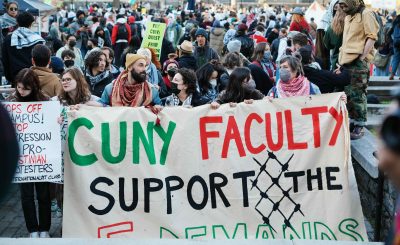By Michelle Yosopov. In January 2025, the United States government will enforce a ban on one of the largest social media apps in the world, a move that could have significant implications for millions of American users. U.S. lawmakers and national security officials are intensifying efforts to impose a nationwide ban on TikTok, the popular social media app owned by the Chinese company ByteDance. The move is fueled by increasing concerns over data privacy, national security, and the app’s ties to China. [Update: TikTok returned to Apple and Google’s app stores February 12, nearly a month after a ban briefly went into effect and barred it from being downloaded by U.S. users—as the Trump administration attempts to sort out a deal that would put it under U.S. ownership and avert an indefinite nationwide ban.]
When asked about the ban on Tiktok in a press conference on December 16th, President elect Donald Trump says he “has a warm spot for TikTok,” highlighting that the app might have played a pivotal role in him winning over a large number of young voters. However, this has not been a consistent stance for President Trump, as his views in 2020 were in favor of a federal ban on Tiktok.
A law passed by the Biden administration back in April 2024, gave Tiktok 270 days to sell its company away from ByteDance, or face a nationwide ban.
Tiktok, which is used by over 100 million Americans, has been facing scrutiny since 2019, due to the U.S. government’s fear that user data could be accessed by the Chinese government. At the heart of the controversy is the Committee on Foreign Investment in the United States (CFIUS), which has been reviewing TikTok’s operations for several years. Their concern is largely due to the possibility of the Chinese government forcing ByteDance to hand over the private information of millions of American citizens. “This is not just a data privacy issue—this is a matter of national security,” said Senator Josh Hawle, a leading voice behind the push to ban TikTok. “We cannot afford to let a Chinese-owned app continue to have access to the personal information of millions of Americans. The risks are simply too great.”
When asked for her opinion on the ban, Haley, a 23 year old nursing student in New York, believes that a Tiktok ban should be the least of the government’s worries. “They have been going back and forth for years saying they’re going to ban some app, but have put little to no effort into the actual problems that we are facing in this country, such as crime, inflation, war, poverty, and so much more.” When asked about why she uses Tiktok, Haley says, “Honestly, I love to just go on there and escape the world for a little and watch funny and wholesome videos. My for you page shows me just what I want to see and I always get a good laugh out of it.”
Similarly, 21 year old CUNY student Valentina, also believes that a ban on Tiktok is unnecessary, and might even be harmful. “A lot of people make money on that app. I follow so many stay at home moms who make cooking videos or daily vlogs and they share how they use Tiktok as a form of income. I just feel bad for people like that. It is genuinely so hard to find a job and make money right now, and Tiktok is actually a good place to find some sort of income, especially by how easy it is to go viral on there.”
“It honestly just feels like we can’t have nice things anymore. If China wanted to steal our data, I am pretty sure it would have happened by now” says Valentina.
Although most students are against a ban on Tiktok, some think that it is for the better. Nineteen year old college student, Anthony, says “Tiktok does a lot more harm to people than we realize. It’s used to spread radical political ideologies, fear mongering, and trends that like to sexualize women and children. I genuinely think that Tiktok causes more harm than good and me personally, would love to see it go.”
Twenty year old student Alexis says, “I see so many conspiracy theories on Tiktok and going on that app makes me really anxious, so I personally do not use it. However, I can say the same thing about apps like Facebook or Instagram, so to me, a ban on Tiktok seems pretty hypocritical.”
This stance is one that many students agree on. “When it comes to the whole ‘invasion of privacy’ or security threats by China, where is this energy towards Facebook?” asked Haley. “Why is Meta, a company that has been known to give out private user data, not facing the same kind of fight from the U.S. government? Is it because they’re not Chinese or affiliated with China?”
When asked if they think this ban is legitimate, many students were unsure. “This has been going on for a while,” says Anthony. “In my opinion, we’re just going to have to wait and see.”


